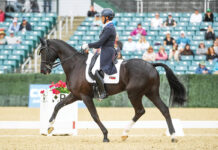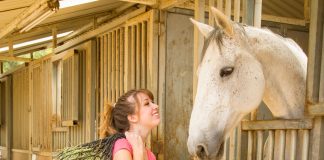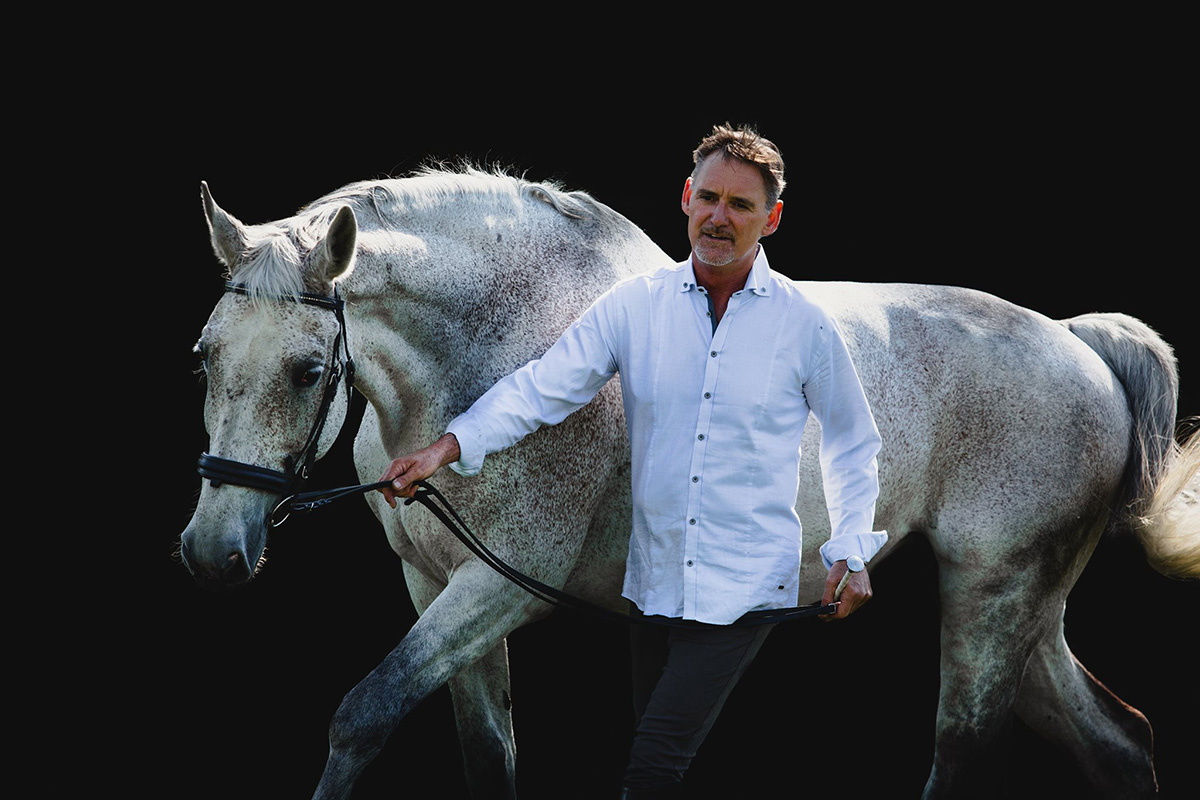
Chris Irwin really gets horses.
Finding a Real Home Through Horses
Irwin didn’t grow up enveloped by the love of family and horses.
“I dropped out of school and left home at 16,” says Irwin. “It was an extremely violent, dysfunctional family and I ran away to survive.”
He played guitar and hitchhiked from Canada to North America, eventually landing in Seattle, Wash. Around the age of 20, he was homeless and living off tips tossed in his guitar case. He heard the racetrack was hiring and decided to check it out.
“As soon as I walked around to the barns, smelled the horses, heard the horses, I literally froze and every cell in my body was tingling,” Irwin recalls. “I knew for the first time in my life that I was home.”
At the end of his first day, the trainer told him he was a natural, gave him a full-time job and a place to stay—a cot in a stall—and Irwin worked his way up from mucking stalls to grooming horses.
Later, he worked at dude ranches and enjoyed success in training wild Mustangs. After ten years, Irwin needed a change.
“I was struggling to earn a living, so I took a six-month break and went back to Canada to ski and do some soul-searching,” says Irwin. “And at the end of winter, I so missed being with the horses. The horses were my medicine, and I needed to get back to work with them.”
He took his passion for horses to the next level, transitioning to trainer-for-hire. After moving to Nevada, he had a long waiting list within six months—”starting young horses, problem-solving with difficult horses.” Veterinarians and farriers were amazed at how much gentler the horses were that Irwin worked with.
At 37, Irwin moved back to Canada—now as a family with his wife and child—and got right to work, reinventing himself as an author, becoming an in-demand clinician, and making videos.
“I wrote Horses Don’t Lie with a good friend,” says Irwin. “By 2000, Horses Don’t Lie was being published in multiple languages and I was getting called to Europe and North America. I was very surprised with how well the book resonated with people because nobody really said anything like that at the time. I wrote a book talking about how I’m finding my psycho-spiritual healing through working with horses. It didn’t have any practical training tips. It was one of the first books that started leading North American horse culture in the direction of working with horses for personal development. I thought there was a good chance I would become a laughingstock.”
He was wrong; people appreciated his authentic voice deciphering natural horsemanship and our connection to horses.
Helping Horses to Rebuild Confidence
Irwin travels to clinics worldwide, helping horses regain courage and confidence, profoundly impacting their overall well-being—and each horse has a story.
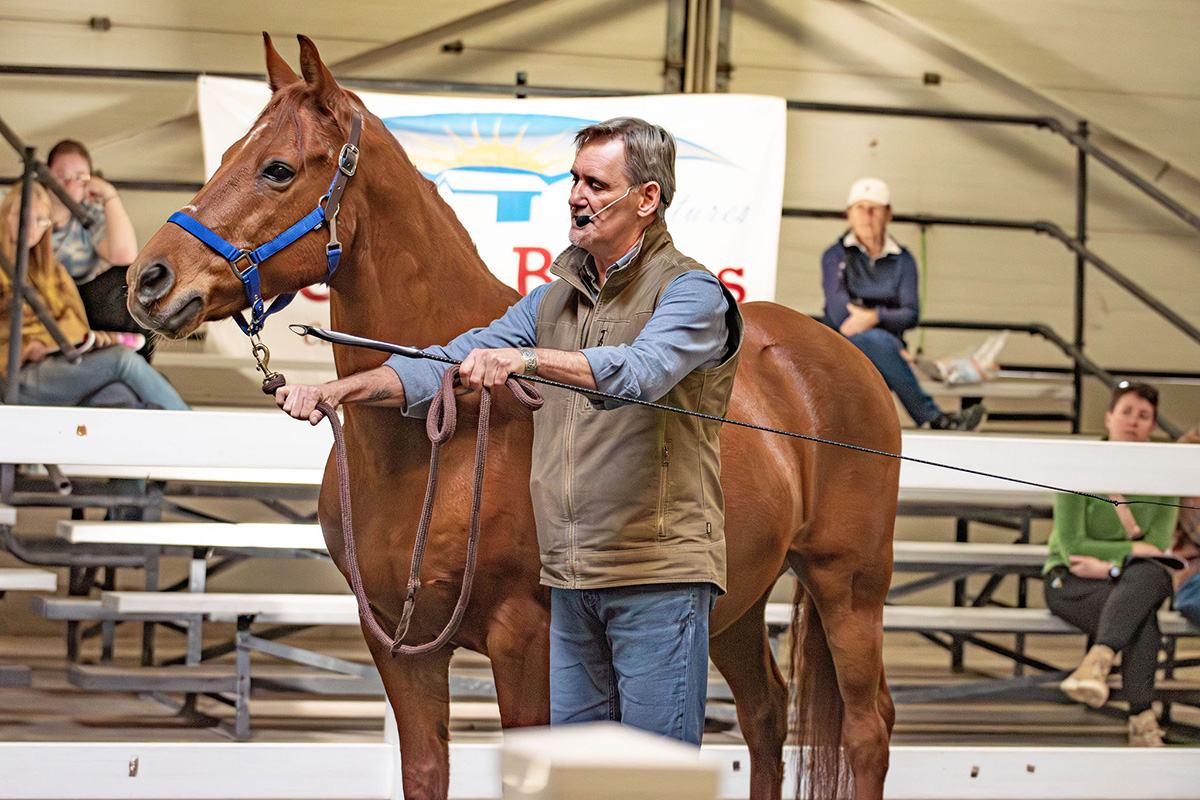
“There’s a horse I work with now in the Netherlands who was rescued as a bull-fighting horse from Spain,” says Irwin. “He had brutal training, had been gored by a bull in a fight, and was full of PTSD. I’d been looking at him, knew trauma was in him, and I knew how to help him get it out, how to release it. I started working with him last year. And what a breakthrough! He is very near and dear to my heart—he shows a depth of appreciation for the healing that he has gone through.
Horses often bring me to tears… I’ve wept in public because of what’s coming out of the horse… There’s much more depth in learning what it takes to help horses who have already decided that human beings are evil and don’t want anything to do with us. That’s where my focus is.”
Chris Irwin as the Empathetic Shepherd
Irwin wants horses to see us as empathetic shepherds and thus want to be in our presence.
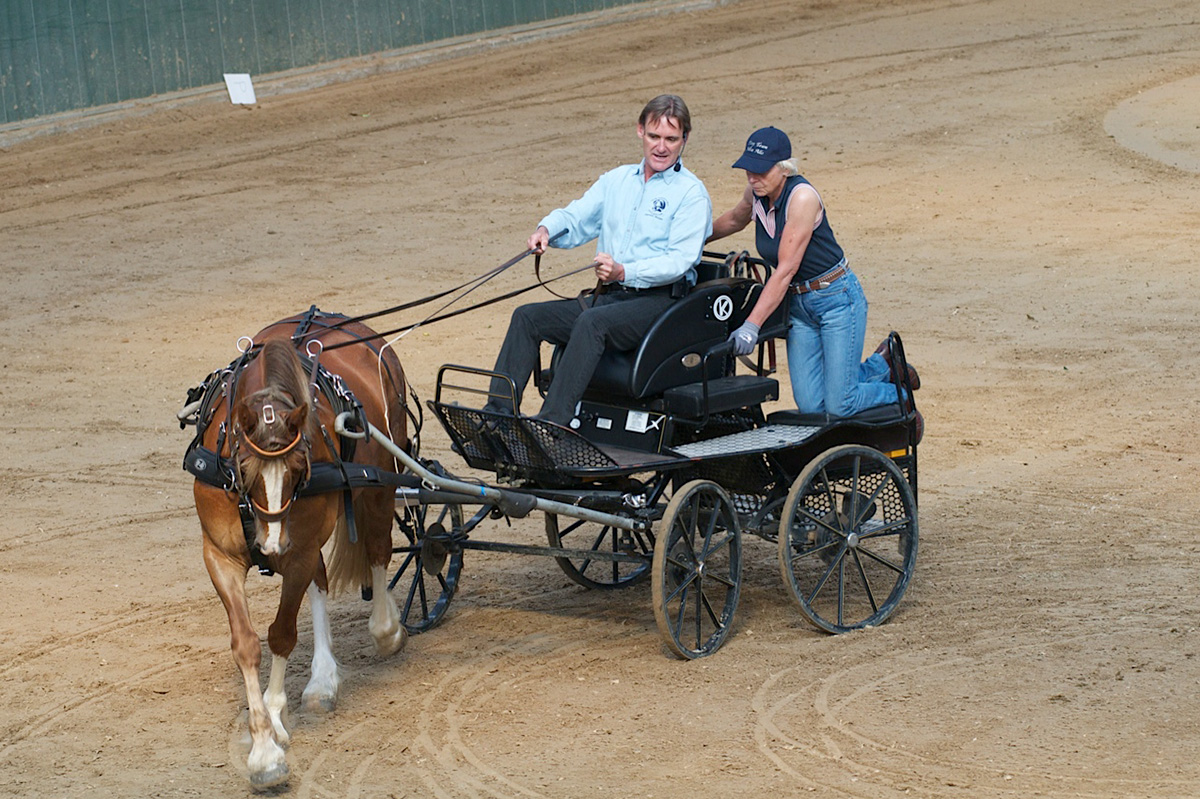
“The premise of everything in my work with horses is that the frame of their body affects the frame of mind. It’s physiology,” says Irwin. “Their body goes into different shapes, different frames… A hollow-backed horse with his back collapsed and his neck up high is producing adrenaline. And enough adrenaline on a consistent basis leaves the body full of cortisol.”
Irwin explains, “The goal is to use groundwork and riding where you use your body to shape a horse’s body so that its internal chemistry produces oxytocin and endorphins, not adrenaline. That’s why it’s feasible for a horse to walk away from the feed and other horses and meet you at the gate, because he knows this is going to feel good. When I ride a horse, it’s like giving them a day at the spa. My seat is a chiropractor. My legs are massage therapists. My contact is like osteopathy. Horses love it when they feel better with you than without you. That’s how they know you’re the shepherd.”
Horses Test Your Awareness Through Body Language
Purposeful groundwork with a physical connection can be complex; some riders mistakenly underestimate its value.
“Groundwork is competing in body language with the horse—to earn respect, trust, and acceptance of your leadership,” says Irwin. “When you walk in to meet a horse you’ve never met before, it doesn’t automatically respect you. Even the nicest horses in the world— if you are a stranger—will test you very subtly with body language.”
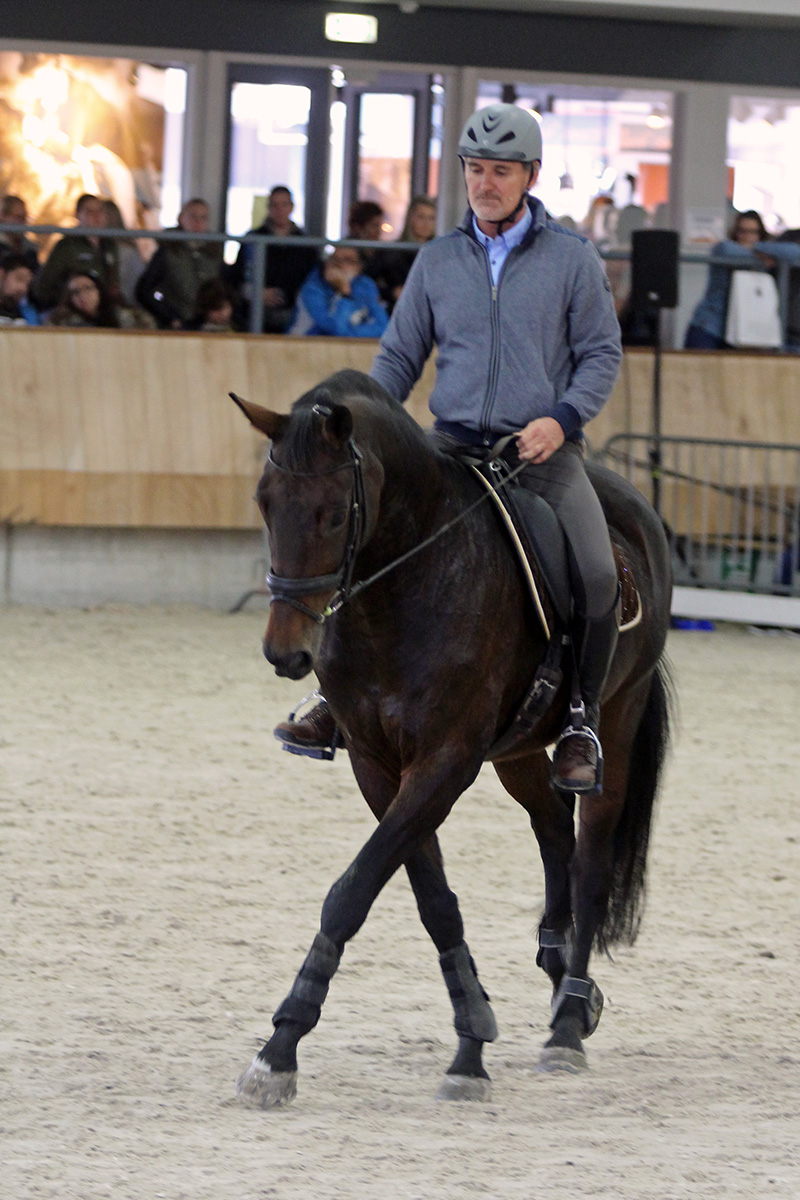
Your body language can cause a horse to feel safe with you, allowing them to relax and view you as the shepherd.
“The horse knows if you have profound situational awareness,” Irwin explains. “He’s tested you. And your response when challenged makes them feel good.”
Tapping Into Chris Irwin’s Insights
Irwin explains his riding approach as “physio from the saddle—helping the horse to relax in his body. The softer and more supple we can get the horse in their bodies, the more relaxed they will become in their minds.”
Eager to share his experience, Irwin created the series of hugely popular online courses, Mind Your Horse and the Irwin Insights: Horse Sense Redefined Skills Certificates and Masters Certification courses.
“The courses are a combination of evolved equestrian insights, cutting-edge production quality, and use of graphics and illustrations as learning aids,” says Irwin. “And I have a completely different approach—due to the depth of minutia of awareness.”
Citing an example, Irwin says, “The single greatest, unspoken dysfunction in the horse world is defining inside and outside as direction instead of flexion. And when you ride a horse according to flexion instead of direction, it melts. It gets so soft. And whether it’s five or fifteen minutes later, now you are riding straight down the long side and you are getting true bends in the corners because you warmed up working with the horse and not against it.”
Spoken like a true shepherd.
To learn more about Chris Irwin, horsemanship, and clinics visit chrisirwin.com and Ray of Light Farm, a nonprofit animal rescue center and riding school in East Haddam, Conn., where he serves as a clinic director.
This article about Chris Irwin is a web exclusive for Horse Illustrated magazine. Click here to subscribe!


